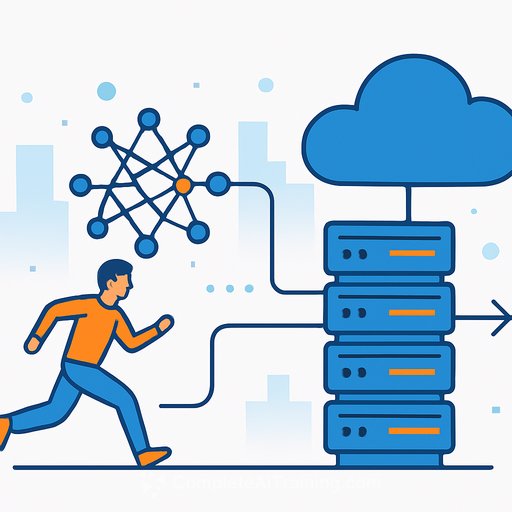Informatica puts AI agents at the center of its data strategy
Informatica is pushing agentic AI deeper into data operations with a Fall update to its Intelligent Data Management Cloud (IDMC). The release packages a set of purpose-built "Claire Agents," stronger reasoning, and new engineering tools that let teams build and govern their own autonomous data agents.
The pitch is straightforward: cut routine lift for data teams, give business users safe self-serve options, and move from rules-based workflows to outcome-focused decisions. All of it is accessible through a natural language interface via Informatica's Copilot.
What's new and why it matters
- Agent-first model: Data management tasks are exposed through agents you can query, chain, or trigger through other agents. Informatica plans to make every IDMC capability agent-accessible over time.
- Reasoning over reporting: Agents don't just raise flags; they can propose fixes based on context. Human approval remains in the loop, and approved actions can be automated going forward.
- No-code agent engineering: A canvas to build, orchestrate, and govern custom agents. Bring your own models, vector databases, and domain logic. Support for Model Context Protocol clients and servers opens up interoperability.
- Reusable components: AI Agent Hub acts as a directory for pre-built agents and automation recipes so teams can validate, share, and reuse.
- Security updates: Controlled unmasking lets authorized users view protected data under policy. Multifactor authentication is now standard for all native IDMC accounts.
Claire Agents: what's available now
- General availability: Data Exploration Agent (for MDM), Enterprise Discovery Agent, Extract/Load/Transform (ELT) Agent, and Product Help Agent.
- Public preview: Data Quality Agent.
- Private preview: Product Experience Agent.
- Access: All agents are usable through Copilot's natural language interface.
Where executives should focus
- Time-to-value: Informatica said the agent engineering toolkit can shrink build time from weeks to minutes. Pressure-test that claim with a narrow, high-value use case first.
- Business self-serve: With reasoning and approvals, non-technical teams can handle more of their own data tasks. That's throughput without headcount-if governance is tight.
- Agent sprawl: Preview programs show "triple-digit" agent counts at customers. Without standards, you'll end up with duplication, unknown costs, and policy drift.
- Security posture: Controlled unmasking is useful for regulated workflows. Validate policies on unstructured data, audit trails, and escalation paths before scaling.
Practical use cases to pilot in 90 days
- Data quality triage: Let the Data Quality Agent propose fixes on a critical dataset, keep approvals manual, measure rework reduction and cycle time.
- Discovery and lineage: Use the Enterprise Discovery Agent to map sources feeding a key KPI; lock in a playbook for ongoing governance checks.
- ELT automation: Have the ELT Agent generate and maintain pipelines for a specific domain, with rollback and cost monitoring in place.
- MDM exploration: Put the Data Exploration Agent in front of business stewards to speed up matching, enrichment, and exception handling.
Operating model and controls
- Agent catalog: Centralize ownership, templates, and naming. AI Agent Hub can help, but you still need intake and review gates.
- Policies by default: Bake in PII handling, controlled unmasking rules, and MFA requirements. Treat agent actions like any privileged operation.
- Metrics: Track task completion time, reduction in manual work, data issue recurrence, and cost per run. Kill or consolidate low-value agents.
- Building blocks: Standardize models, prompts, and context stores. If you use vector databases, align on one approach and document usage patterns. A primer on vector databases is here: what they are and why they matter.
What to watch
- Coverage: Informatica's goal is full agent access across IDMC. Validate gaps against your roadmap-governance, MDM, quality, lineage, ELT, and support.
- Governance at scale: As agent counts grow, so will policy exceptions. Put audit, versioning, and incident response on day one.
- Model choice: BYO models and MCP support increase flexibility. Standardize contracts and evaluation criteria for reliability, latency, and cost.
Bottom line
Informatica's Fall release moves data management from manual tickets to agent-driven workflows that propose, act, and learn-while keeping approvals in human hands. If you're spending too much on repetitive data tasks or waiting on backlogs, run a focused pilot with clear guardrails and measurable outcomes. Scale only after you've proven quality, policy compliance, and cost control.
Helpful resources
- Model Context Protocol overview - for teams planning multi-agent interoperability.
- Complete AI Training: courses by job - upskill leaders, data stewards, and operations teams on agent-based workflows.
Your membership also unlocks:










